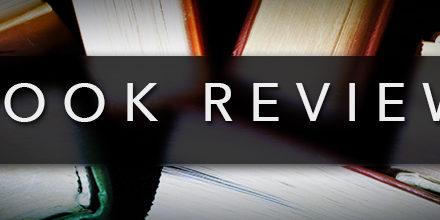
Recommended Resources on Exodus, Part 1: Relevant Books (By Timothy Raymond)
I’m currently preaching through the book of Exodus at my church. (In the event anybody is interested, here’s a link to the audio of the first several sermons.) The Lord enabled me to do a good bit of research into Exodus before I began the series and to collect some excellent books and commentaries on this pivotal segment of the Torah. I can say that thus far the series has gone quite well and I’ve thoroughly enjoyed what I’ve learned. To help you, my brother-pastors, more effectively preach Exodus, I’ll be directing you to some of the best material I’ve discovered, beginning with books designed to help us understand the context and message of Exodus.
How to Read Exodus, by Tremper Longman (Downers Grove: InterVarsity, 2009).
I feel basically the same about this book as I felt about the companion volume on the Psalms. It’s not a bad or unhelpful book but I have a hard time getting excited about it. It covers all the basics of historical background, overall message, the role of the Law today, the Tabernacle, etc. but in rather tiring prose. Frankly you’d get all the same information in a good introduction to the Old Testament but in about a tenth of the pages. Longman also has that mildly annoying tendency to always want to straighten-out benighted evangelicals. Unless you’re, say, teaching a Bible college course on Exodus, this is probably one you could skip without much loss.
 Exploring Exodus: The Origins of Biblical Israel, by Nahum Sarna (New York: Schocken Books, 1996).
Exploring Exodus: The Origins of Biblical Israel, by Nahum Sarna (New York: Schocken Books, 1996).
Now this is a book I get excited about! It’s written by a conservative, Bible-believing Jew and is a wonderful overview of the message of Exodus with tons of interaction with archaeology and Ancient Near East culture. The author does argue for a late (13th-century BC) date for the Exodus, which I don’t find persuasive, and since he’s a Jew, there’s no interaction with the New Testament. But if used in conjunction with good evangelical commentaries, it’s an absolute goldmine. Also, and this feels odd to say since he’s not a believer, but the author regularly draws theological truths about the character of God from the Exodus which are actually quite helpful. I’m consulting this book regularly as I prepare my sermons.
Ancient Egypt and the Old Testament, by John D. Currid (Grand Rapids: Baker, 1997).
As the title indicates, this book is not exclusively about the Exodus but about the interface between Ancient Egypt and Ancient Israel which takes place throughout the entirety of the Old Testament. However, the majority of that does pertain to Exodus and this book is extremely helpful when preaching Exodus (as well as Genesis, the Historical Books, and Isaiah). Chapter address issues such as how snakes were revered in Ancient Egypt (e.g., the transformation of Moses’ staff into a snake as well as the bronze serpent on the pole), the plagues as a war against the Egyptian pantheon (fascinating!), the Egyptian significance of the “hardening of Pharaoh’s heart”, and the location of the crossing of the Red Sea. I should say that this book is written by a scholar in Egyptology, primarily for scholars in that field, but if you’re not afraid of some sometimes-heavy reading, it’s enormously illuminating.
Lord willing, in my next post in this series I intend to recommend a few exegetical commentaries on Exodus. I hope to follow up with posts on commentaries for preachers and books on specific topics within Exodus (e.g., the Tabernacle, the Decalogue, etc.) I’ll close with an invitation. If there are resources on Exodus (i.e., lectures, commentaries, books, etc.) you’d recommend or would like me to review, leave them in the comments below and I’ll consider including them.
Timothy Raymond is an editor for Credo Magazine and has been the pastor of Trinity Baptist Church in Muncie, Indiana since April 2006. He received his MDiv from the Baptist Bible Seminary of Pennsylvania in 2004 and has pursued further education through the Christian Counseling and Educational Foundation.
